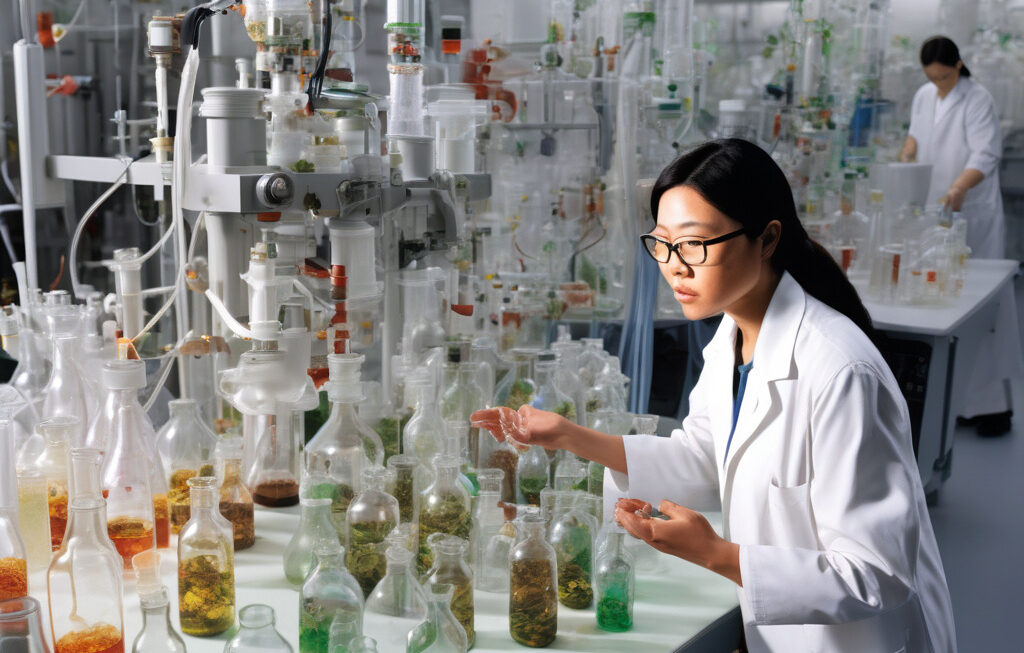Revolutionizing Plastic Recycling: Nickel Catalyst Turns Single-Use Plastics into Oils with Ease
Northwestern University chemists have developed a groundbreaking process that could simplify one of the world’s most pressing environmental challenges: plastic recycling. The innovative approach involves the use of a nickel catalyst that can efficiently convert single-use plastics into high-quality oils, all at low heat and without the need for sorting.
Plastics have become an integral part of our daily lives, but their disposal presents a significant problem. With millions of tons ending up in landfills or oceans every year, finding effective recycling solutions is more critical than ever. Traditional plastic recycling methods often involve complex sorting processes and high temperatures, making them energy-intensive and costly.
The new catalyst developed by the team at Northwestern University offers a game-changing alternative. By using nickel nanoparticles on a porous support material, the process can transform various types of single-use plastics, including polyethylene, polypropylene, and polystyrene, into value-added products such as oils.
What sets this innovation apart is its simplicity and efficiency. Unlike conventional recycling methods that require meticulous sorting of plastics by type, the nickel catalyst can handle a mix of different plastics without the need for separation. This not only streamlines the recycling process but also makes it more economically viable on a large scale.
Furthermore, the conversion of plastics into oils occurs at relatively low temperatures, significantly reducing energy consumption compared to traditional methods. This not only makes the process more sustainable but also opens up new possibilities for utilizing waste plastics in a cost-effective manner.
The potential applications of this technology are vast. The oils produced can be used as feedstocks for the production of new plastics, lubricants, or even fuels. By upcycling single-use plastics into valuable resources, the catalyst offers a closed-loop solution that aligns with the principles of a circular economy.
Moreover, the scalability of the nickel catalyst process makes it a promising candidate for industrial implementation. With the ever-increasing demand for sustainable solutions, this innovation could play a significant role in transforming the plastic recycling landscape.
As we continue to seek ways to reduce plastic waste and minimize environmental impact, the development of efficient recycling technologies is crucial. The nickel catalyst pioneered by Northwestern University chemists represents a leap forward in this direction, offering a practical and effective solution to the challenges posed by single-use plastics.
In conclusion, the groundbreaking process of converting single-use plastics into oils using a nickel catalyst holds immense promise for revolutionizing plastic recycling. By eliminating the need for sorting and operating at low heat, this innovation addresses key limitations of traditional recycling methods. As we move towards a more sustainable future, technologies like this will be instrumental in reshaping our approach to plastic waste management.
plastic recycling, sustainability, innovative technology, environmental conservation, circular economy












